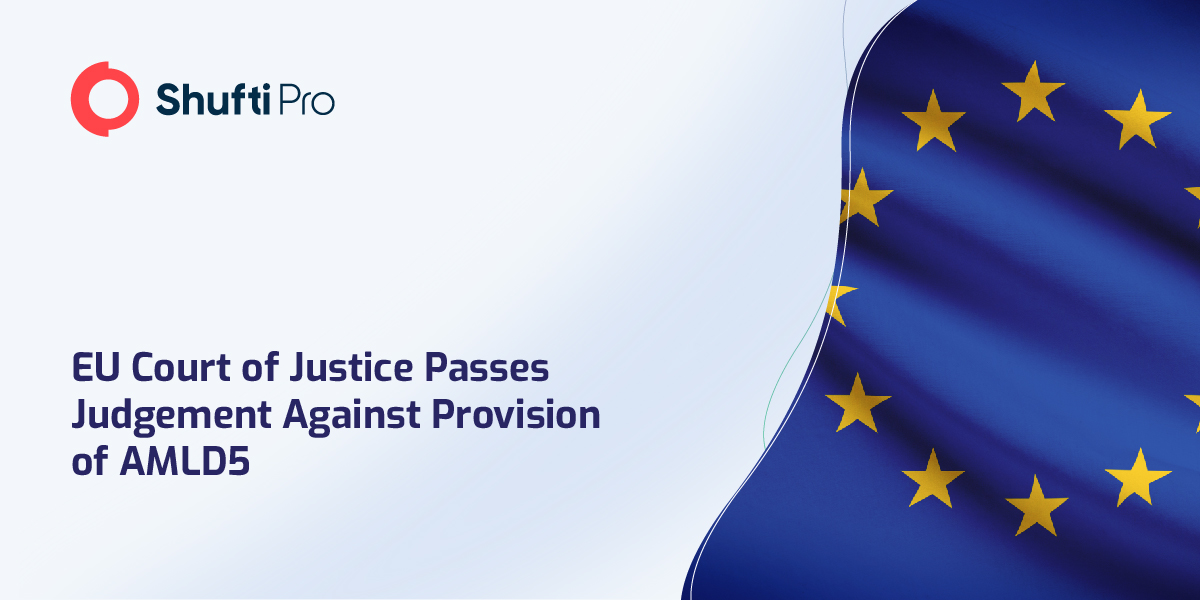EU Court of Justice Passes Judgement Against Provision of AMLD5

EU Court of Justice has passed a judgment against the provision of the AMLD5, concluding that public access to beneficial ownership data violates the right to privacy and protection of personal information.
The organization pointed out that the EU Countries had enacted anti-secrecy regulations as a response to financial misconduct disclosed by Pandora Papers, Panama Papers, and other such financial data leaks.
“By requiring corporations and offshore entities to publicly disclose who truly owns them, public beneficial ownership laws are designed to prevent their owners from escaping the rule of law, which can mean preventing billionaires from evading tax as well as preventing sanctioned oligarchs, organized crime and human traffickers from laundering money and financing illegal activity,” said the London-based Tax Justice Network advocacy group.
Due to privacy concerns, the Court has just declared the legal obligations invalid for companies, trusts, and legal entities to disclose their beneficial owners’ identities, even one who intentionally hides either taking benefit from weak regulations or using shell firms.
“The Court, sitting as the Grand Chamber, holds that, in the light of the Charter of Fundamental Rights of the European Union, the provision of the (5th) anti-money-laundering directive whereby Member States must ensure that the information on the beneficial ownership of corporate and other legal entities incorporated within their territory is accessible in all cases to any member of the general public is invalid,” the judgment states.
The Court concluded that public access to data on beneficial ownership violates the rights to protection of personal data and privacy established in the European Union Charter.
“Furthermore, the potential consequences for the data subjects resulting from possible abuse of their personal data are exacerbated by the fact that, once those data have been made available to the general public, they can not only be freely consulted but also retained and disseminated,” the court warned.
The Tax Justice Network mentioned that the ruling came during EU deliberations about improving measures to stop ill-gotten money that is entering the EU from Russia.
Corrupt money flows expert at Transparency International, Maíra Martini, said that “We have seen time and time again, from the Czech Republic and Denmark to Turkmenistan, how public access to registers helps uncover shady dealings. At a time when the need to track down dirty money is so plainly apparent, the court’s decision takes us back years.
Senior Policy Officer of Transparency International EU, Roland Papp, thinks that “the European lawmaking and executive bodies should now counter the Court’s decision by guaranteeing access in the current 6th EU Anti-Money Laundering Directive, which should also include precise provisions that reconcile public access with privacy and security concerns.”
The Tax Justice Network, at the same time, urged the EU government not to accept “a return to the dark ages of dirty money and to open a full public hearing on the decision.”
The organization concluded that “With the EU’s hands now tied on public beneficial ownership transparency, countries will increasingly look to the UN to pick up the charge.”
Suggested Read: EU to Introduce Sixth ‘Anti-Money Laundering Authority’ for Crypto Oversight











